For all the talk around Jose Mourinho’s position as Manchester United manager, and the speculation that has swirled around Old Trafford for most of this season, there has been a quiet (well, as quiet as you can get with Mourinho) turnaround occurring in the red half of Manchester. United, in coming back from a goal down to win 2-1 in Turin, have now lost just one of their last six games – a 1-0 reverse to the same opponents at Old Trafford a couple of weeks ago. During this time, they have shown immense powers of recovery to win against Newcastle, Bournemouth and now Juventus, while also unluckily only managing a draw away to Chelsea, all after having gone behind initially. It surely cannot be said anymore that Mourinho has lost the dressing room; these players are certainly fighting for him and the club they represent, while Mourinho himself looks like he has rediscovered his mojo, making decisive in-game changes and genuinely enjoying the provocation he receives from opposition fans. Ahead of the Manchester derby on Sunday, this piece will look at the key tactical talking points from Wednesday night’s game in Turin, and how United managed to wrest back the advantage and beat a Juventus team who had enjoyed a lengthy unbeaten run at home.
Lineups
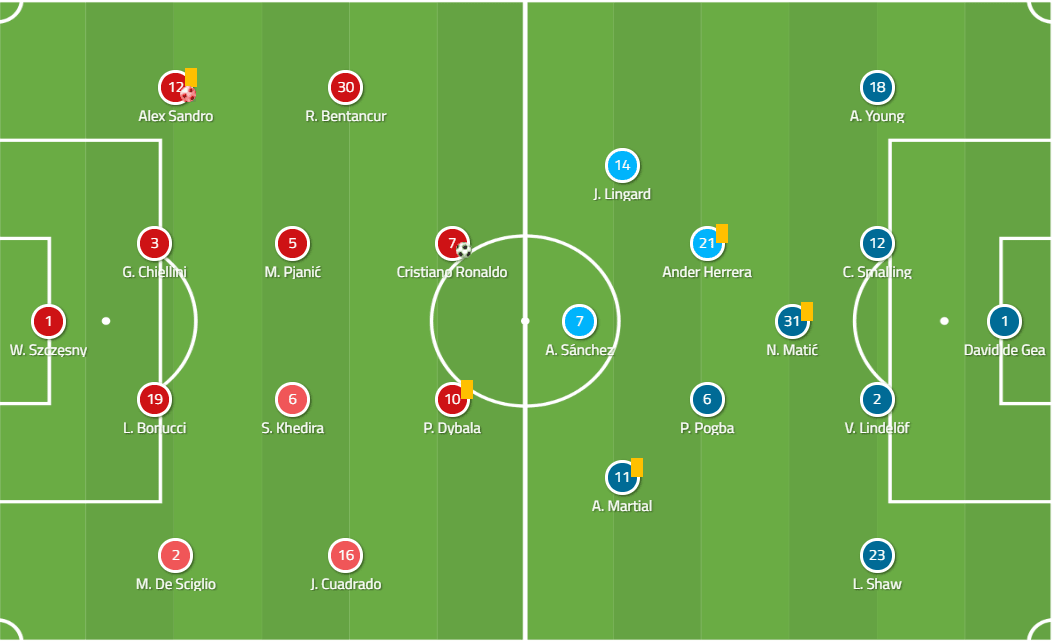
While the above image shows the Bianconeri as having lined up in a 4-4-2, it was actually a 4-3-3, with Rodrigo Bentancur in midfield alongside Pjanic and Khedira, and Paulo Dybala reprising his role as a ‘false nine’ of sorts from the reverse fixture, having Ronaldo and Cuadrado play off him on the flanks.
Jose Mourinho brought in Ander Herrera to strengthen United’s midfield, which had been overrun by Juventus in the reverse fixture, while Alexis Sanchez continued as the striker in Romelu Lukaku’s absence. Juan Mata dropped to the bench, with Jesse Lingard taking his place.
Juventus control early exchanges
There was a visible change in attitude from Manchester United from the reverse fixture – instead of being passive and allowing the Old Lady to dominate possession, here, United were aggressive, pressing high up the pitch and looking to disrupt Juventus’ passing rhythm –
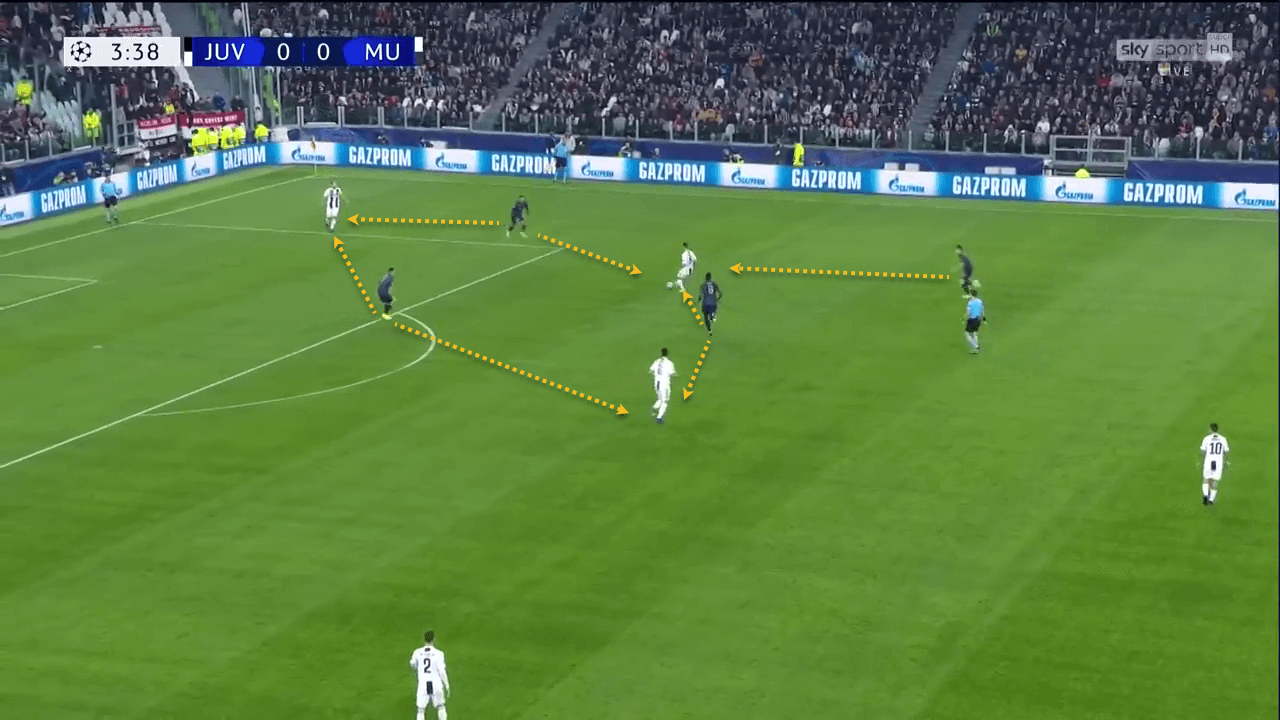
However, unlike Manchester City or Liverpool or Tottenham, United are not used to pressing in a coherent, planned manner. While the attackers and midfielders went upfield, United’s defenders stayed deeper, perhaps wary of Ronaldo and Cuadrado’s pace on the counter. As a result, their efforts to pressure Juventus, while admirable, resulted in huge spaces opening up in the middle of the pitch, where Nemanja Matic was often isolated and outnumbered, and Juventus were able to play past him quite easily.
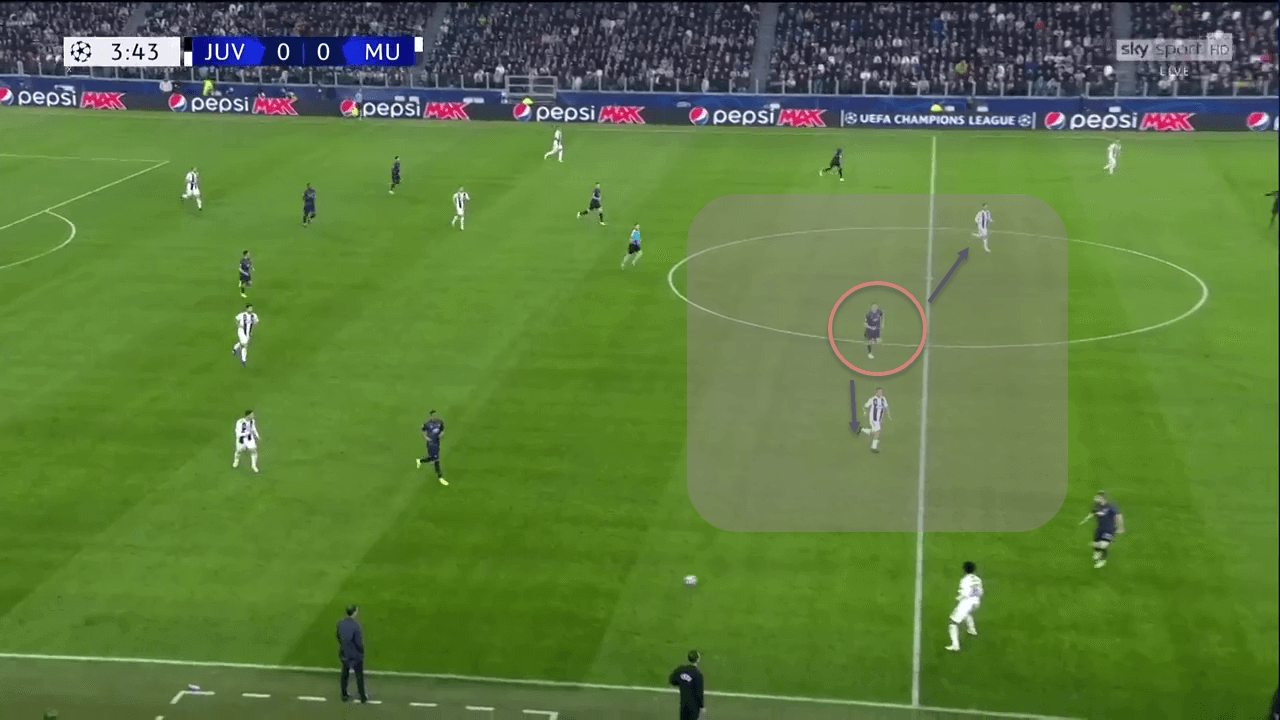
This was demonstrated by the fact that Matic got booked as early as the 12th minute, as he was forced to bring down Paulo Dybala and ‘take one for the team’, in the absence of any covering midfielders.
Another issue was the fact that Paul Pogba was making runs into the half-space between Bonucci and De Sciglio; the full-back was being drawn out towards Martial, who would then play the ball into space for Pogba. While this was a clever attacking strategy, it meant that Pogba was usually out of position to drop back or cover when Juventus countered, once again isolating Matic.
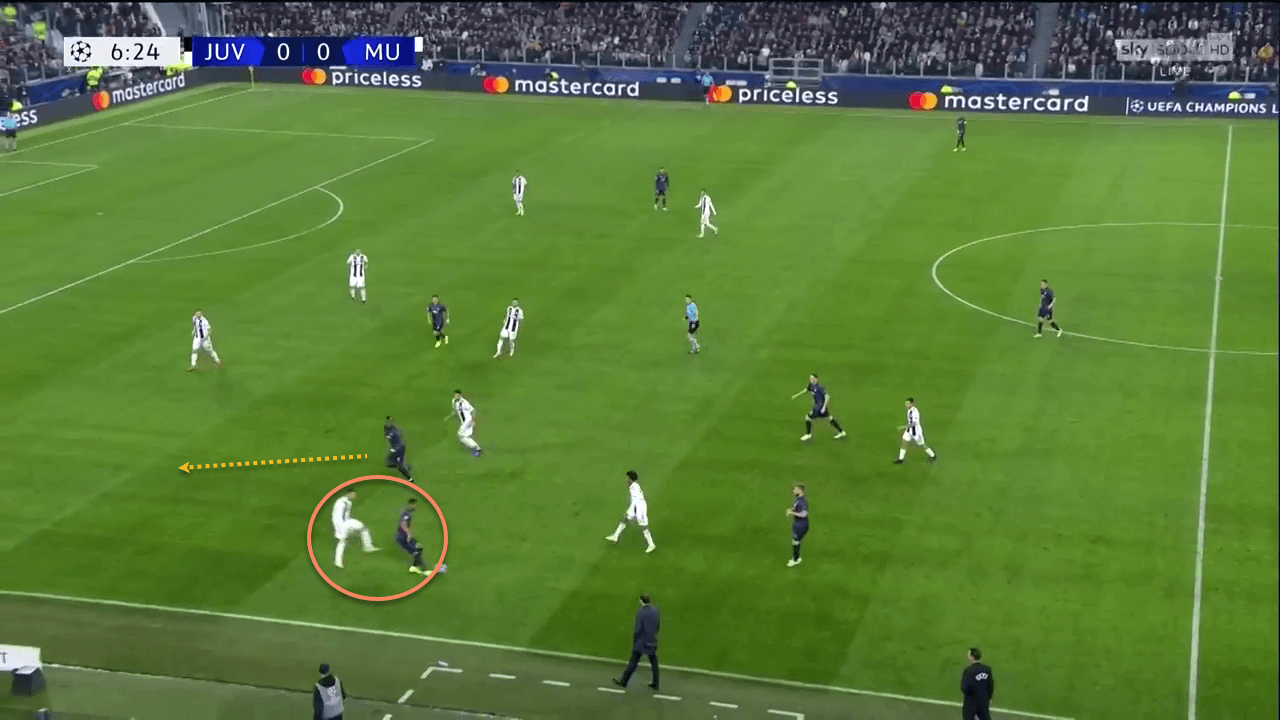
United’s defensive approach pays off (to an extent)…
It seemed as if Mourinho realized the problems with this disjointed pressing approach midway through the first half, as United then began to drop deep, and effectively play in a 4-4-2 without the ball, staying compact and denying Juventus space between the lines.
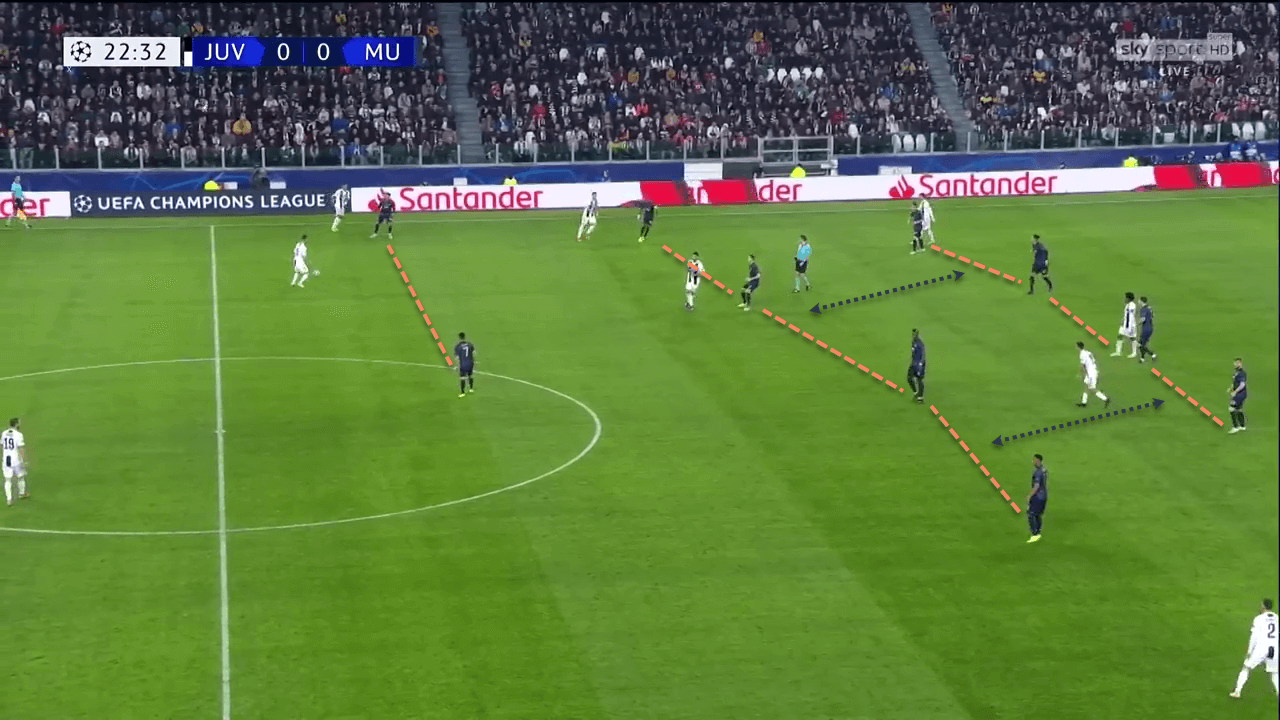
However, while United’s wingers would stay wide while attacking, to open up the half-spaces for onrushing midfielders to attack into, Juventus, on the other hand, had Ronaldo and Cuadrado moving inside, creating space for their fullbacks to move forward. This would often create a 2v1 out wide, as United’s wingers failed to track the Juve full-backs –
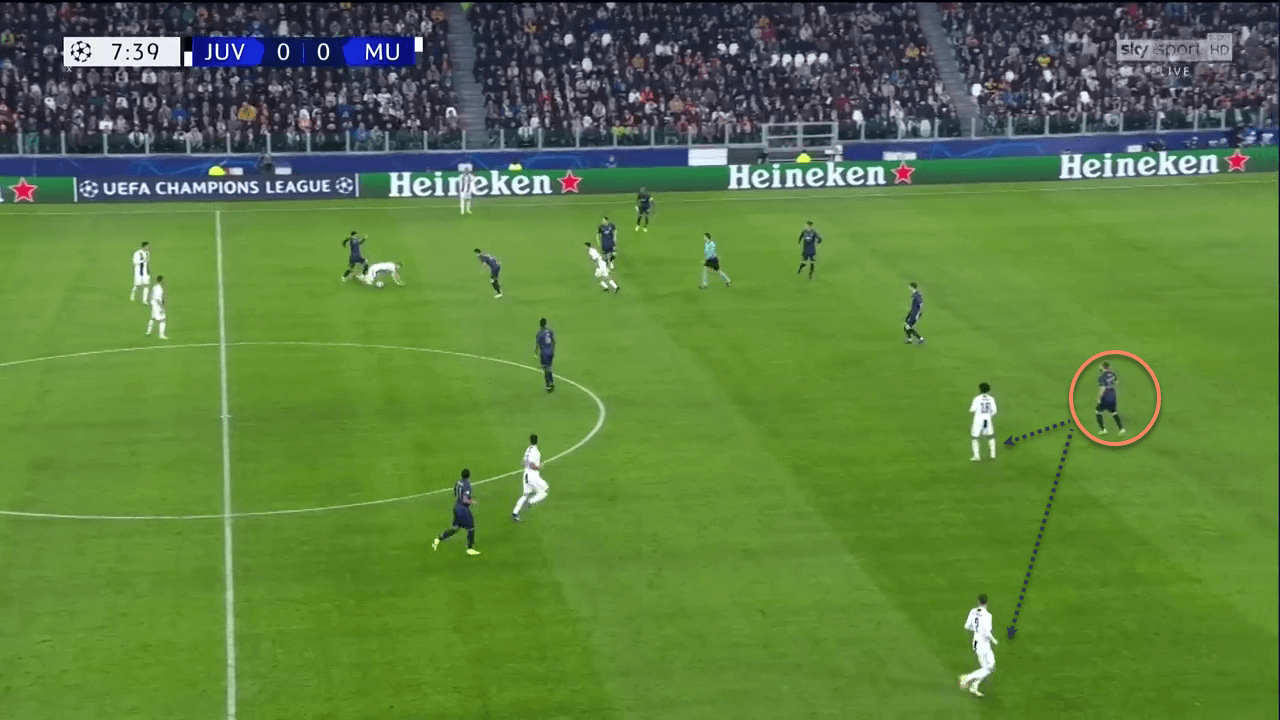
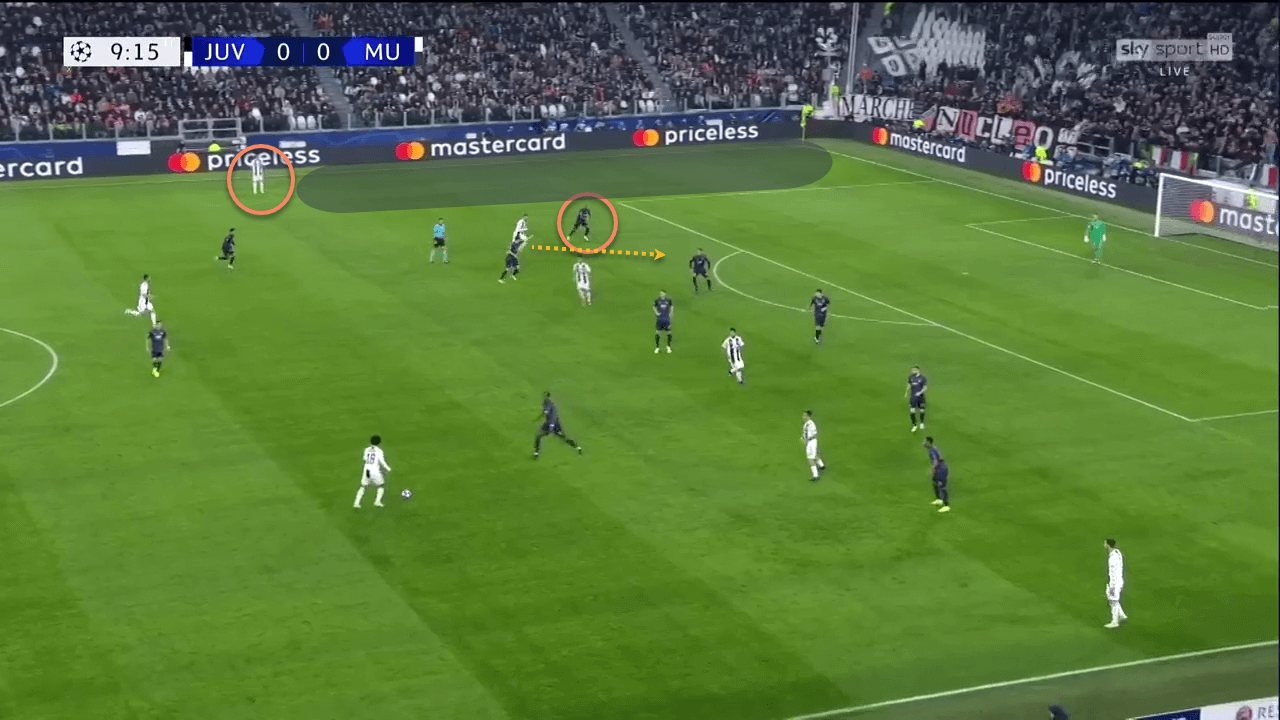
Nevertheless, this approach worked to an extent. United were compact and narrow, forcing Juve to either cross the ball from out wide, or take shots from range. This is borne out from the statistics – Juventus took 23 shots in the match, of which 12 were from outside the box, while they also attempted 23 crosses. In contrast, the Bianconeri had only attempted 13 crosses in the reverse fixture at Old Trafford. This shows that Mourinho had learnt his lesson, and denying Juventus space centrally was a key factor behind United’s eventual win in Turin.
…but Juve score because of it
A knock-on effect of United’s defensive system was that the Juventus centre-backs had a lot of time on the ball. Leonardo Bonucci is probably the best ball-playing centre-back in the world, and to give him time to pick a pass is criminal, as United discovered to their detriment –
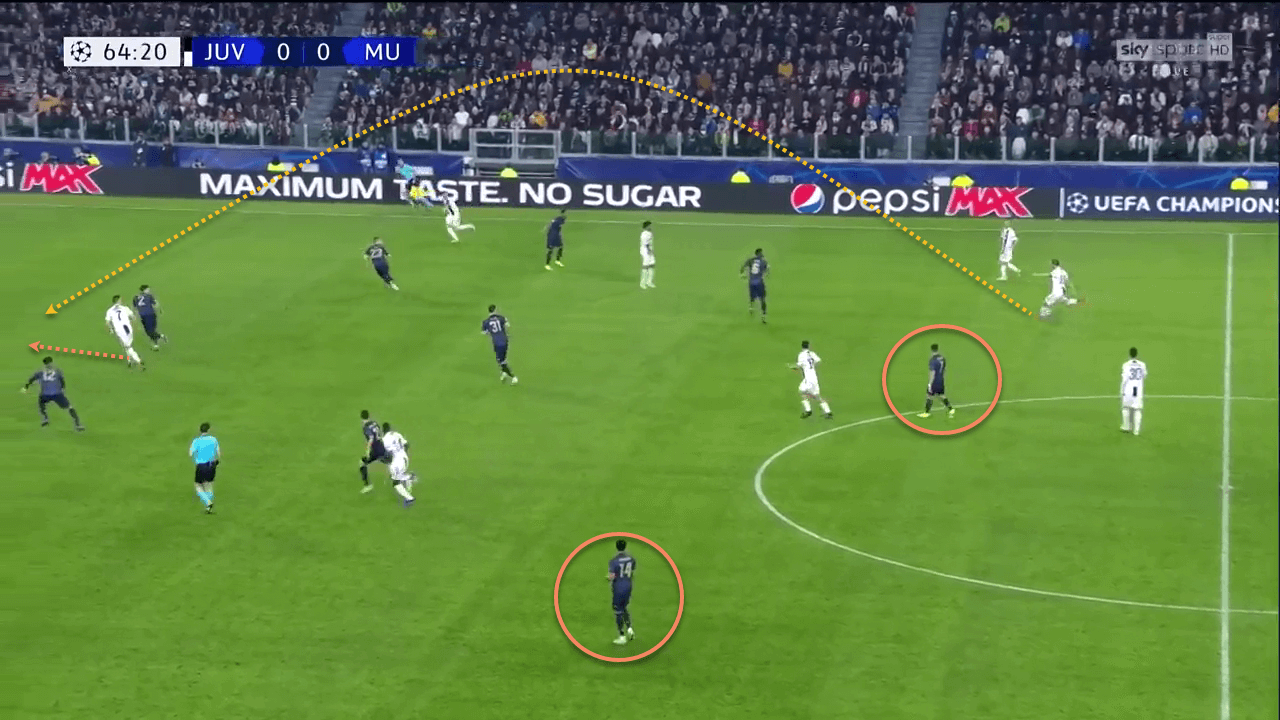
United change tack to grab three points
Mourinho changed tactics upon going behind, instructing his full-backs to get high up the field and stretch Juventus.
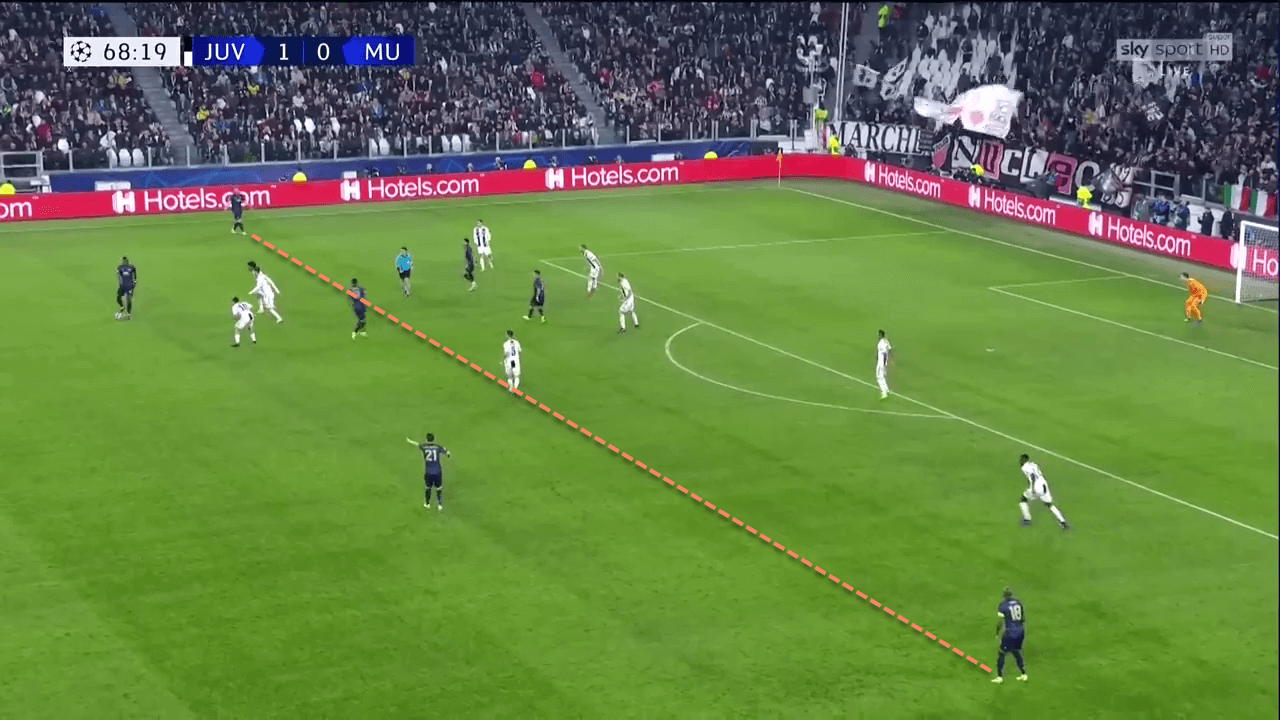
His changes also worked wonders – Marcus Rashford added pace to an already fast attack, pushing Juventus back, while Juan Mata netted the equalizer, and Marouane Fellaini’s physicality was a major factor in the winner.
Conclusion
Manchester United’s tactics worked almost perfectly in Turin – they started out by pressing Juventus, but soon realized that this was leaving too much space in midfield, and thus dropped deep and denied the Bianconeri space in the middle, forcing them wide. When a bit of Ronaldo magic gave Juve the lead, Mourinho was quick to change things, once again adopting an aggressive mindset and making attacking substitutions which changed the game. Based on this, and the last few Manchester United performances, reports of Mourinho’s demise may have been premature, and this was just the sort of result that will breed confidence ahead of yet another titanic Manchester derby, where, incidentally, United had performed just this sort of smash-and-grab last season. Could we be up for a repeat?

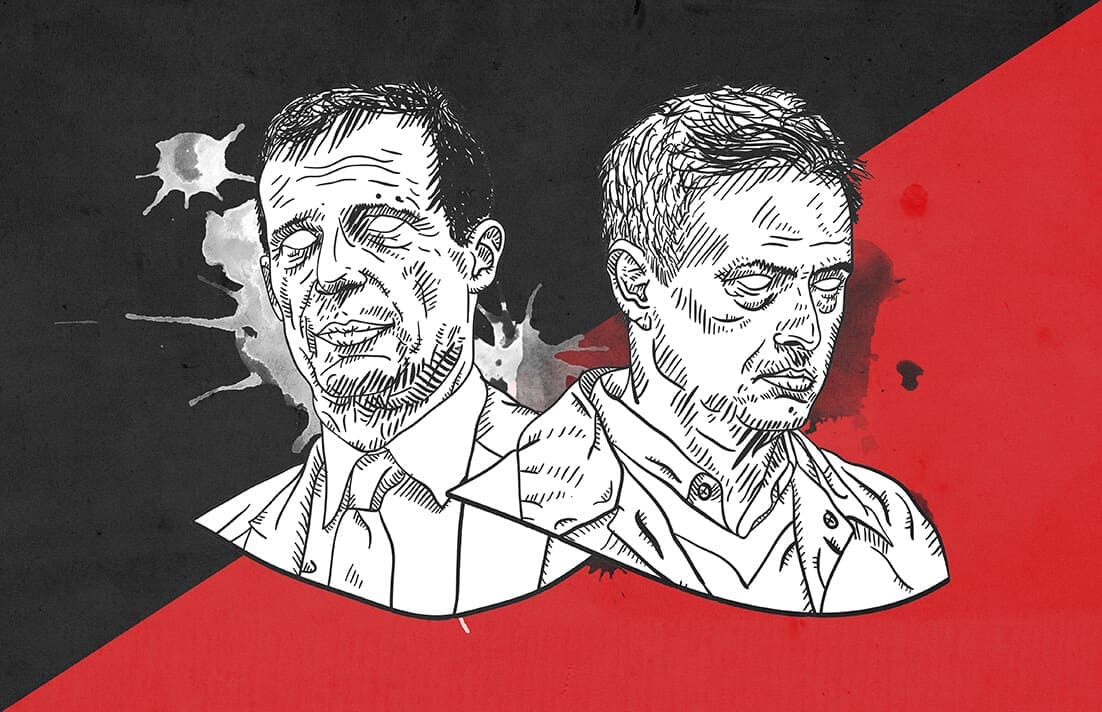



Comments